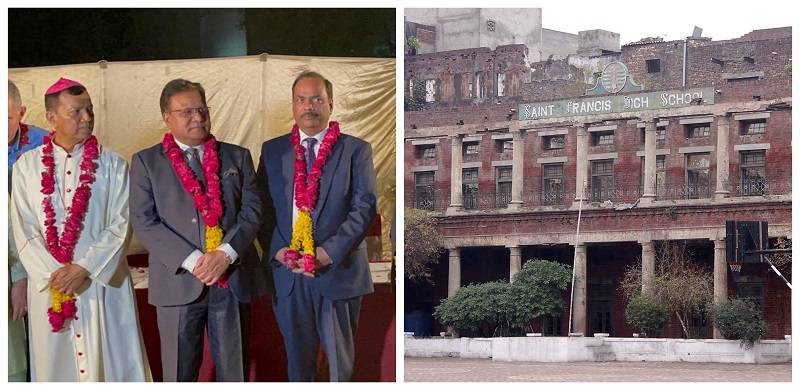
By Aftab Alexander Mughal
Christians in Pakistan have praised the Punjab government's recent decision to hand back four missionary schools to provincial church authorities, optimistic that through these schools, poorer Christian children will be educated and become productive citizens of the state.
On March 21, the Punjab cabinet decided to hand over one school to the Catholic Church in Lahore and three schools to the Presbyterian Church of Pakistan in Sialkot and Rawalpindi. These schools are almost 175 years old and had been providing a quality education to students before their nationalisation. The decision was announced by the Provincial Minister of Human Rights and Minorities Affairs Ejaz Alam Augustine during a press conference on March 22.
Two days later, church leaders from both Protestant and Catholic congregations gathered in Lahore to discuss the issue. Although they welcomed the government’s announcement, they demanded a notification of the decision.
Catholic Archbishop Sabastian Shaw of Lahore thanked Minister Augustine for his efforts to return the schools to the parishes after almost 50 years. Church of Pakistan Moderator Bishop Dr. Azad Marshall of Raiwind also appreciated the Punjab government’s decision, and requested formal notifications in this regard.
The Christian community also demanded to reclaim schools’ properties and administrative authorities from the government departments.
Christians claim that their children get fewer educational opportunities in public schools due to poverty and social discrimination, which creates insecurity amongst them.
In 1972, Prime Minister Zulfiqar Ali Bhutto nationalised several institutions, including 118 missionary schools and colleges from seven different churches under his socialist economic agenda. Since then, churches have been asking nearly every government to return of those schools, but the process has until now been slow. There are still many educational institutions that are under government’s possession.
Katherine Sapna Karamat, a Christian human rights activist from Lahore, said that nationalisation affected literacy rates among the Christian community.
The majority of Christian students prefer church-run education institutions for studies, as their educational standard is higher than the government schools, and students get religious education too. Furthermore, the institutions focus on character and personality building.
Christians claim that their children get fewer educational opportunities in public schools due to poverty and social discrimination, which creates insecurity amongst them. Parents cannot afford to send children to private schools as most are too expensive for common people. Sadly, education has become a commercial business in Pakistan now.
According to the education department, missionaries will manage administrative affairs of the schools and may hire new teachers. The present teachers will continue to receive salaries from the Punjab government.
Christian missionaries’ services in the education sector are remarkable. During the British Raj, missionaries started opening schools and colleges in different villages and cities in the Indian subcontinent. These institutions mainly serve poor communities.
Miss Sapna, Executive Director of Christians’ True Spirit (CTS) said, “I believe it’s the most important decision of the Punjab government as the nationalisation has ruined one generation already that majority of Christians are illiterate, timid and weak.”
She added, “After the denationalization of the 59 Christian institutions in 2004 during the time of President General Pervaiz Musharraf, missionary schools again promoted education among Christians and gave chance to Christian students to become nurses and doctors, and serve in other professions too. So, I think that time will come soon when we see Christians are strong again not only in the educational field but in every field of life.”

